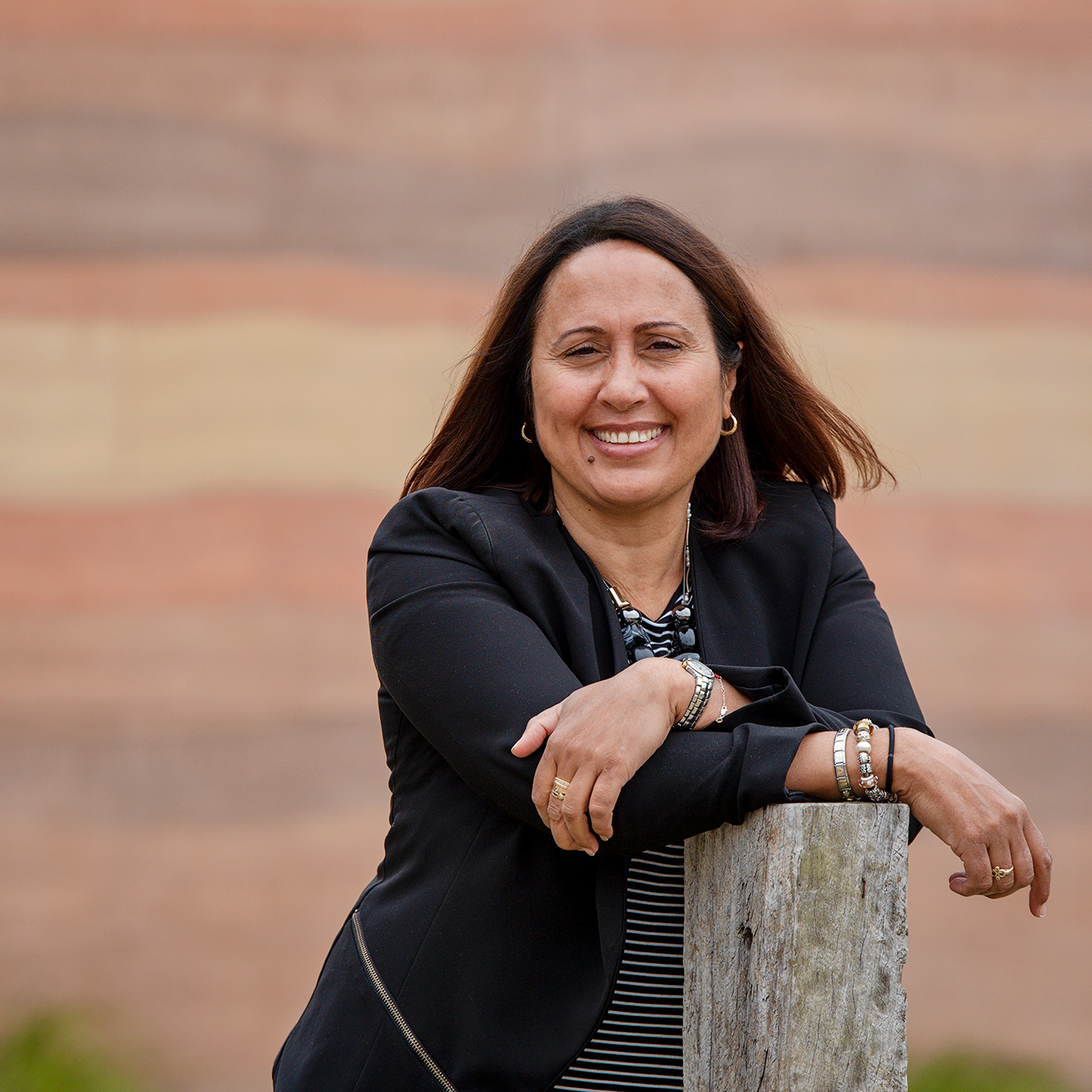About us

April Lawrie
Commissioner for Aboriginal Children & Young People
About the Commissioner
I am a proud Aboriginal woman who heralds from the Mirning and Kokatha peoples from the Far West Coast of South Australia.
In 1990 I attained a Social Work degree. My early career highlights have been in front line Aboriginal child and family services and foster care work. Over the past 30 years, I have contributed to the formation of policy at the state and national level, and excellence in service innovation and community development in regard to Aboriginal health, education, child and family welfare, foster care, and youth justice services across metropolitan and regional areas, including rural and remote South Australia.
The work I have undertaken over the years has led me to a range of executive leadership roles in the South Australian Government, including four years as the Aboriginal Justice Director in the Attorney General’s Department, ten years as SA Health Aboriginal Health Branch Director, and two and a half years as Director, Aboriginal Education.
As an Aboriginal person, I understand the roles and responsibilities that are intricately provided by family and community. I acknowledge their stories and experiences, and strive to respond to them meaningfully through policy and practice change that places a high value on culture.
I am passionate about creating change through the voices of our Aboriginal children and young people in South Australia. The development of culturally informed and culturally safe child and family policy and services must include their voices.
The Role of the Commissioner
The role of Commissioner for Aboriginal Children and Young People is established under the Children and Young People (Oversight and Advocacy Bodies) Act 2016
The Commissioner is empowered to undertake a range of functions related to Aboriginal children and young people and is the only independent body created solely to promote the rights, development and wellbeing of Aboriginal children and young people within South Australia, at a systemic level. This includes developing culturally safe and informed strategies and promoting Aboriginal voice with regard for the safety and wellbeing of all Aboriginal children and young people.
With complementary functions, the Commissioner works alongside other independent bodies such as the:
- Commissioner for Children and Young People
- Guardian for Children and Young People in Care
- Child Development Council
- Child Death and Serious Injury Review Committee.
These independent bodies are enshrined in the Children and Young People (Oversight and Advocacy Bodies) Act 2016 and have individual obligations to fulfil and perform functions that contribute to improving outcomes for children and young people in South Australia, inclusive of Aboriginal children and young people. This legislation was introduced as a direct outcome of the Royal Commission into South Australia’s child protection systems.
The Commissioner for Aboriginal Children and Young People is guided by the United Nations Convention on the Rights of the Child; the principle accord which lays out the civil, political, economic, social and cultural rights of children, as well as the United Nations Declaration on the Rights of Indigenous Peoples; the central instrument that defines the collective rights of Indigenous Peoples to their own distinct cultures and to pursue their development according to their own needs and aspirations.
The Commissioner promotes and advocates for the rights, interests and wellbeing of Aboriginal children and young people in South Australia in the realm of their indigeneity, and ensures that, as a part of the global community, South Australia enacts its obligations to these key covenants.
